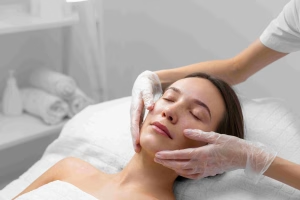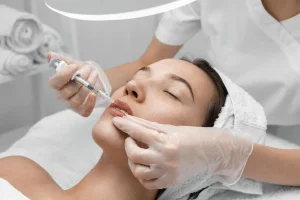June 13, 2024
Acne Scar Solutions Malaysia | Da Vinci Clinic
Acne scars can be classified into several types based on their morphology and characteristics. Atrophic scars are the most common type, accounting for 60-70% of all acne scars. These scars are characterized by depressions in the skin, which can be further classified into three subtypes.
Ice pick scars are a type of atrophic acne scar characterized by deep, narrow, V-shaped indentations on the skin’s surface. They are typically less than 2 mm wide and can extend deep into the dermal layers of skin, often resembling enlarged pores. Ice pick scars are caused by severe inflammation associated with nodular acne, which can lead to skin perforation and the formation of these deep, narrow holes.
Boxcar scars are atrophic acne scars with a round or oval-shaped appearance, well-defined edges, and deep vertical sides. They can range from superficial to deep, depending on the amount of skin atrophy caused by inflamed and infected acne lesions. Boxcar scars are typically wider than ice pick scars and resemble chicken pox scars.
Rolling scars are shallow, soft depressions that become more noticeable when skin ages and loses its elasticity. They are characterized by a wavy, uneven appearance caused by tethering from the dermis to the subcutaneous layer. Rolling scars are the widest but shallowest scar type and rarely reach down to the reticular dermis.
How Da Vinci Clinic Can Help with Acne Scars:
At Da Vinci Medical Clinic, we provide advanced treatments specifically designed to improve the appearance of rolling scars. Our treatment options include the Fotona SP Dynamis PRO Laser, Advanced Yellow Laser, Subcision, Injectables, and the Fractional CO2 Laser.
Our skilled dermatologists and skincare experts create personalized treatment plans that target the unique needs of each patient, helping you achieve smoother, more even skin and restore your confidence. Find out more about Acne Scars Treatment here.
Book now for a FREE Consultation session with our doctors.
Newsletter
Be the first to know about new treatments, events, and articles.




